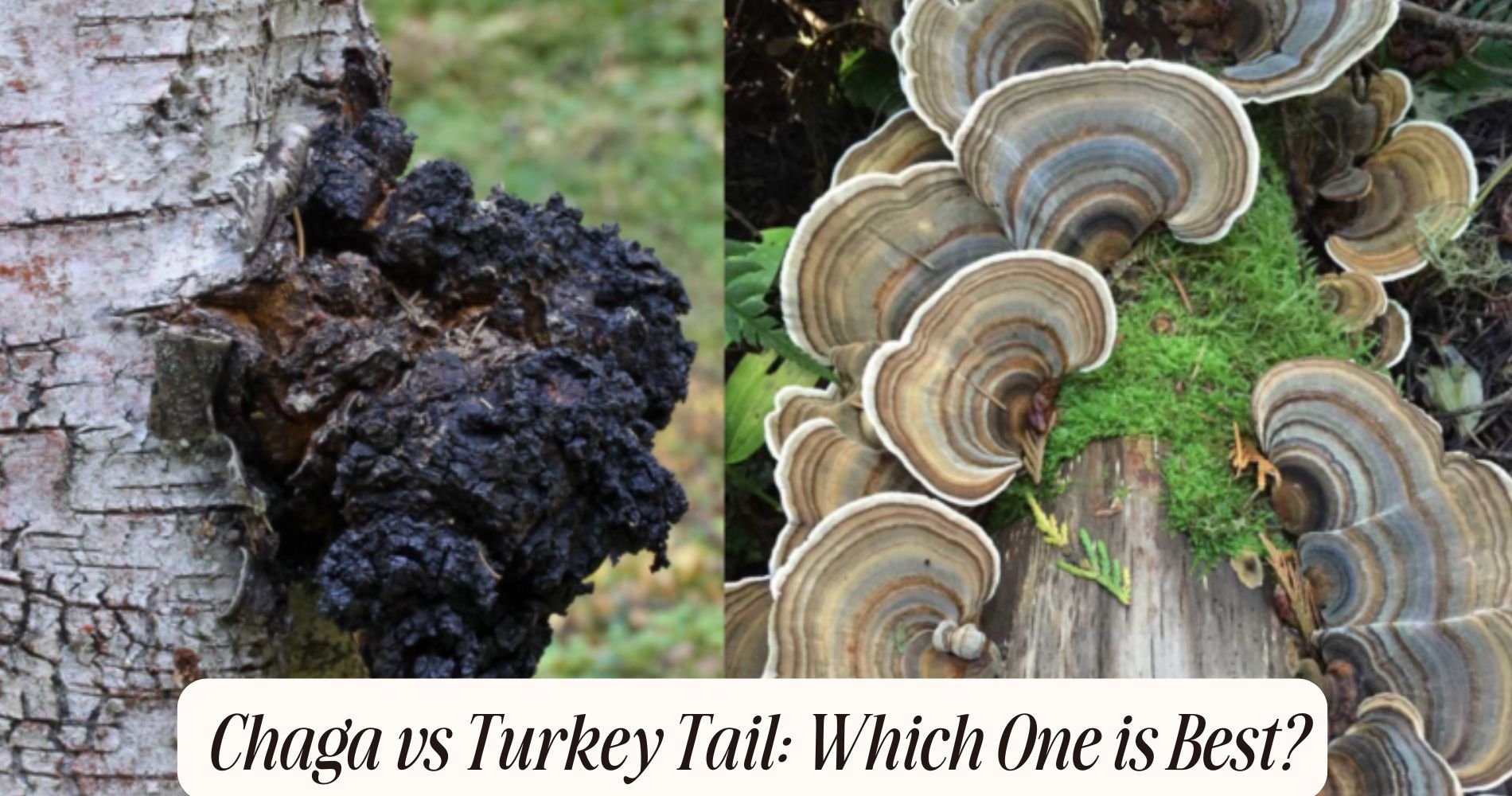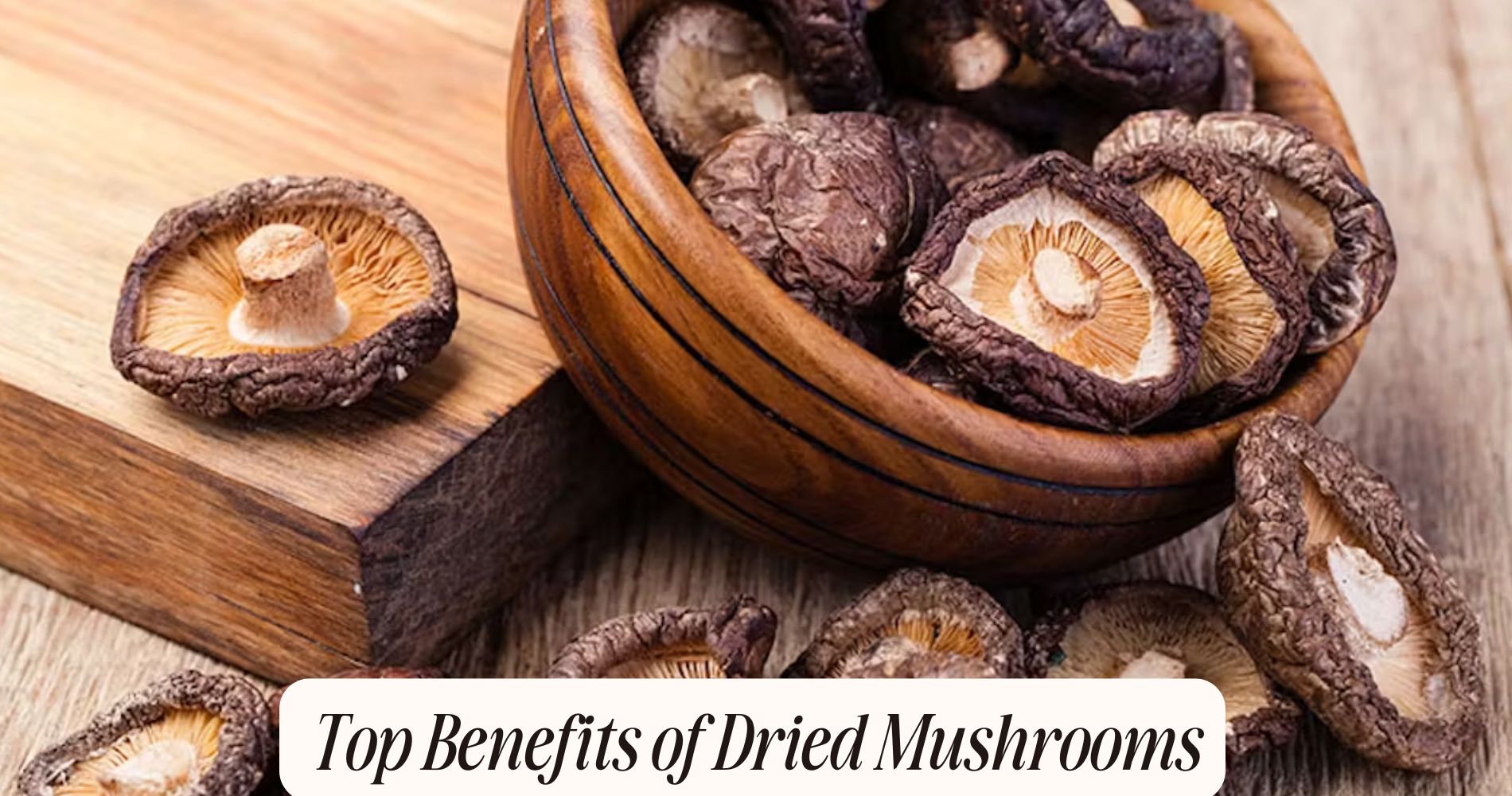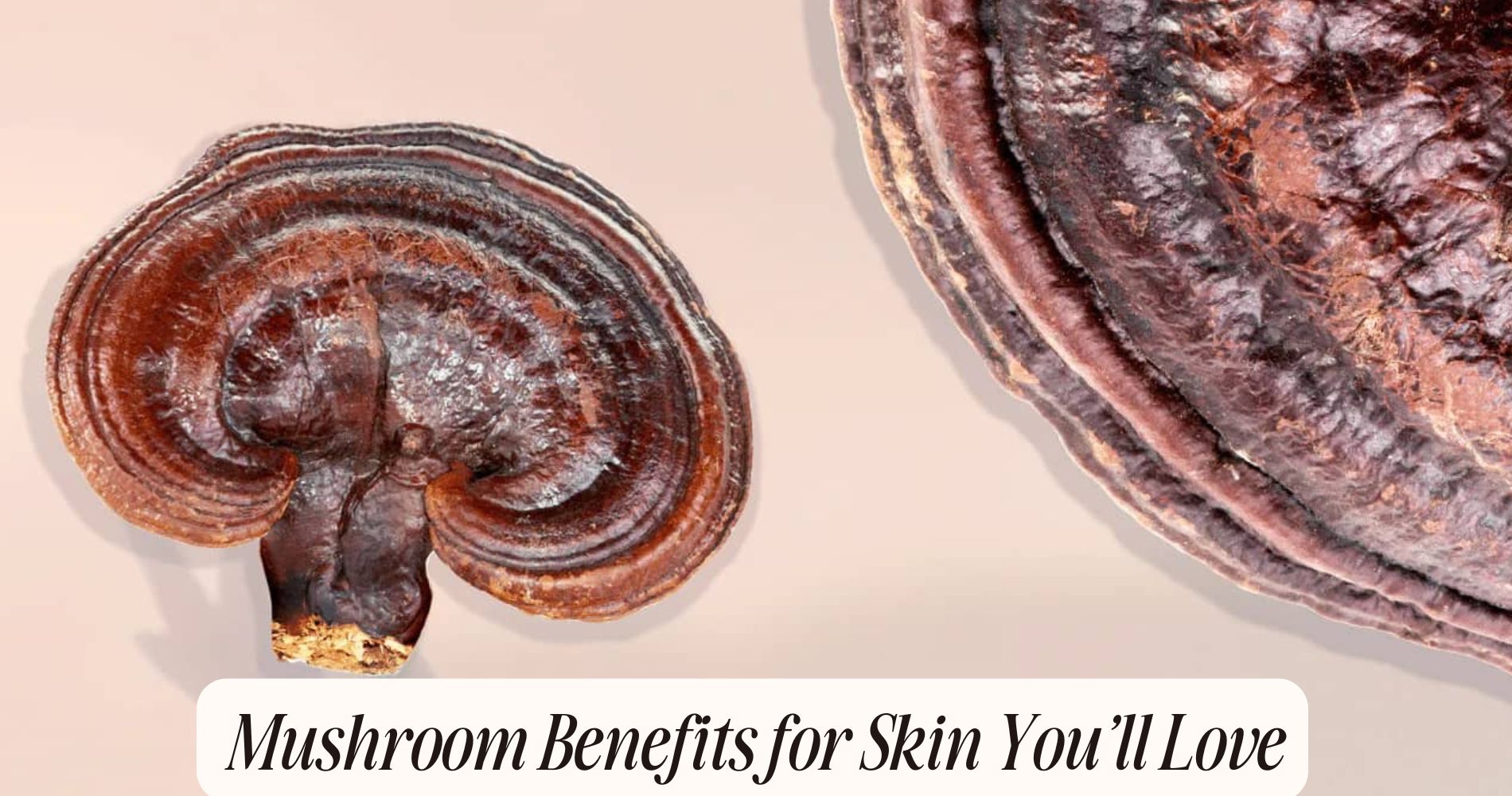
Chaga vs Turkey Tail: Which One is Best?
When deciding between Chaga and Turkey Tail, consider your health goals. Chaga excels in providing high antioxidant levels, which help reduce oxidative stress and promote overall wellness. It's sourced from birch trees and generally consumed as a tea or powder. On the other hand, Turkey Tail, growing on decaying wood, is rich in polysaccharopeptides that specifically boost immune function, making it ideal for recovery during illness. Both mushrooms are well-tolerated, but individual reactions can vary. Your choice should align with whether you seek general antioxidant benefits or focused immune support. There's much more to discover about both options.
Overview of Chaga
Chaga, a fascinating medicinal fungus, thrives on birch trees in cold climates, particularly in Northern Europe, Asia, and North America. Its unique appearance resembles a blackened, irregular mass, but its health benefits are what truly stand out.
You'll find that chaga uses extend beyond traditional medicine; it's gaining traction in the wellness industry as a natural supplement. People often consume it as a tea, tincture, or powder, leveraging its potential antioxidant properties and immune-supporting effects.

When considering chaga cultivation, it's vital to note that this fungus grows specifically on living birch trees, making it challenging to farm. Unlike other fungi, chaga can't be cultivated in a controlled environment like mushrooms.
Instead, sustainable harvesting practices are imperative, ensuring that you only collect it from healthy birch trees without causing ecological harm. If you're interested in incorporating chaga into your routine, sourcing it responsibly can enhance not just your health but also the environment.
As research continues, the full scope of chaga's medicinal properties may become clearer, paving the way for even wider applications.
Overview of Turkey Tail
Turkey tail, scientifically known as Trametes versicolor, is a widely studied medicinal fungus recognized for its distinctive, colorful fan-like shape resembling a turkey's tail. This polypore mushroom grows on decaying wood and has been utilized for centuries in traditional medicine, particularly in Asian cultures.
One of the key features of turkey tail is its rich profile of bioactive compounds, including polysaccharopeptides (PSP) and polysaccharide krestin (PSK), which contribute to its medicinal properties. These compounds are believed to enhance immune function, making turkey tail a popular supplement among those seeking to bolster their health.

Research indicates that turkey tail may possess antioxidant and anti-inflammatory properties, which can further support overall wellness. Its high levels of polysaccharides are particularly significant, as they may play a role in modulating immune responses.
For anyone interested in natural health solutions, understanding turkey tail's characteristics and potential benefits is essential. As you explore its uses, consider how its unique properties might fit into your wellness regimen, particularly if you're looking for a supplement that supports immune health.
Health Benefits Comparison
When comparing the health benefits of chaga and turkey tail, it's essential to examine their unique compositions and how these influence their therapeutic effects.
Chaga, known for its high concentration of antioxidants, particularly betulinic acid, offers robust immune support. This compound helps combat oxidative stress, which can lead to cellular damage. By reducing inflammation and promoting overall wellness, chaga is often touted for its potential in enhancing your immune system's response.

On the other hand, turkey tail is rich in polysaccharopeptides, specifically PSP and PSK, which have been extensively studied for their immune-boosting capabilities. These compounds stimulate immune function by activating various immune cells, making turkey tail a popular choice for those seeking support during illness or recovery.
While both mushrooms exhibit strong antioxidant properties, their mechanisms differ. Chaga primarily focuses on reducing oxidative stress, whereas turkey tail enhances immune cell activity.
Ultimately, your choice may depend on whether you're seeking general antioxidant benefits or targeted immune support. Understanding these differences allows you to make an informed decision tailored to your health needs.
Potential Side Effects
While both chaga and turkey tail offer numerous health benefits, it's important to contemplate their potential side effects as well.
Chaga is generally well-tolerated, but some individuals may experience allergic reactions, particularly those with sensitivities to mushrooms. Symptoms can range from mild skin irritations to more severe responses, so monitoring your body's reaction is vital when you first introduce chaga into your regimen.

On the other hand, turkey tail is also considered safe for most people; however, it can cause gastrointestinal discomfort in some cases. If you're prone to such issues, it's wise to start with a low dosage and gradually increase it.
Dosage considerations are essential for both mushrooms, as excessive intake can lead to adverse effects. For instance, high doses of chaga may affect blood sugar levels or interfere with certain medications, particularly anticoagulants.
Therefore, consulting a healthcare professional before starting either supplement can provide tailored advice and prevent complications.
Choosing the Right Mushroom
Choosing the right mushroom for your health needs involves understanding the unique properties and benefits each option offers. Chaga and Turkey Tail mushrooms both boast impressive health benefits, but their applications can differ considerably.
When considering mushroom sourcing, guarantee you choose high-quality, sustainably harvested products. Chaga is typically found on birch trees in cold climates, while Turkey Tail grows on decaying wood. This distinction affects not just the mushroom's potency but also its bioavailability.

Preparation methods also play a vital role in maximizing the health benefits. Chaga is often consumed as a tea or extract, requiring a longer boiling time to extract its beneficial compounds, such as betulinic acid.
Conversely, Turkey Tail is usually prepared as a decoction or tincture, making it easier to incorporate into daily routines.
Ultimately, your choice should align with your specific health goals. If you're looking for immune support, Turkey Tail may be your best option due to its rich polysaccharide content.
However, if you seek antioxidant properties, Chaga could be more suitable. Understanding these factors will empower you to make an informed decision.
Enjoy the Best of Both with SUPER MUSHROOM GUMMIES
Can’t decide between chaga vs turkey tail? With SUPER MUSHROOM GUMMIES from Well Gummies, you don’t have to! These convenient, vegan-friendly gummies combine the benefits of 10 powerful mushrooms, including both chaga and turkey tail, giving you comprehensive support for immunity, energy, and mental clarity.
Enjoy the delicious wild berry flavor without jitters or crashes, making it easy to fuel your day and stay balanced. Whether you're boosting your immune system or sharpening your focus, SUPER MUSHROOM GUMMIES offer the perfect blend to support your wellness journey.
Frequently Asked Questions
How Do Chaga and Turkey Tail Differ in Taste?
Chaga offers an earthy, slightly bitter flavor profile, often used in teas, while turkey tail has a mild, slightly sweet taste, suitable for soups and broths. Understanding these culinary uses can enhance your cooking experience.
Can Chaga or Turkey Tail Be Used in Cooking?
You can use both chaga and turkey tail in cooking methods like teas or broths. Their nutritional benefits, including antioxidants and immune support, enhance dishes, making them a valuable addition to your culinary repertoire.
What Are the Environmental Impacts of Harvesting These Mushrooms?
When harvesting mushrooms, consider sustainable harvesting methods to maintain ecological balance. Overharvesting can disrupt local ecosystems, leading to loss of biodiversity. It's essential to implement practices that protect these mushrooms and their habitats for future generations.
Are There Any Contraindications for Taking Chaga or Turkey Tail?
When considering safety considerations, you should note that both chaga and turkey tail can interact with certain medications. Always consult your healthcare provider to discuss potential health interactions before adding them to your regimen.
How Do Chaga and Turkey Tail Compare in Terms of Cost?
When comparing chaga pricing and turkey tail affordability, you'll find chaga tends to be pricier due to its harvesting difficulties. Turkey tail, however, often offers a more budget-friendly option, making it accessible for regular use.
Conclusion
In comparing chaga and turkey tail, both mushrooms offer unique health benefits, yet their uses differ. Chaga excels in antioxidant properties, while turkey tail is renowned for immune support. Your choice should align with your specific health goals. Consider factors like desired benefits, potential side effects, and personal health conditions. Consulting a healthcare professional can also help guarantee you select the mushroom that best suits your needs, maximizing the benefits of these powerful natural remedies.




